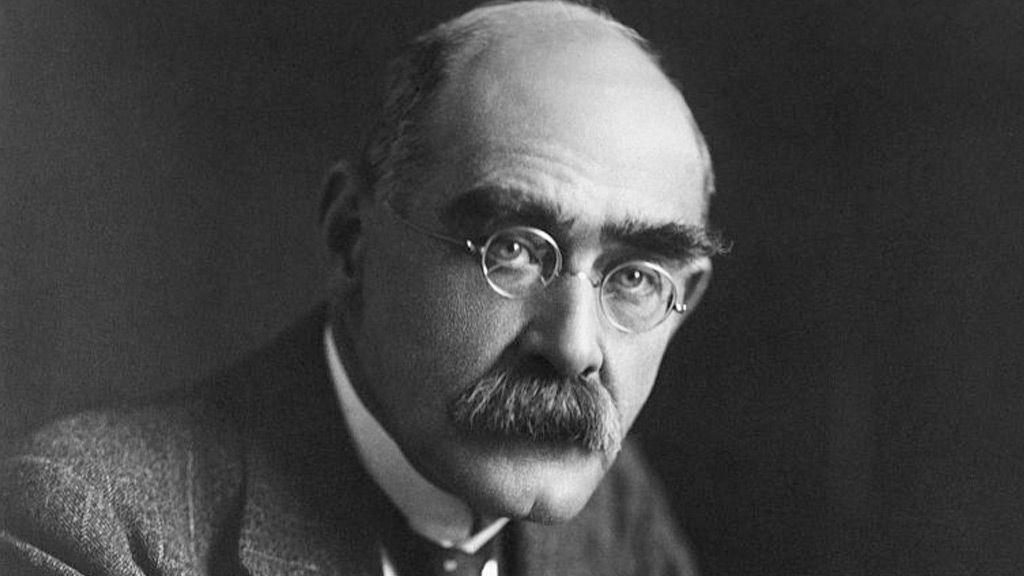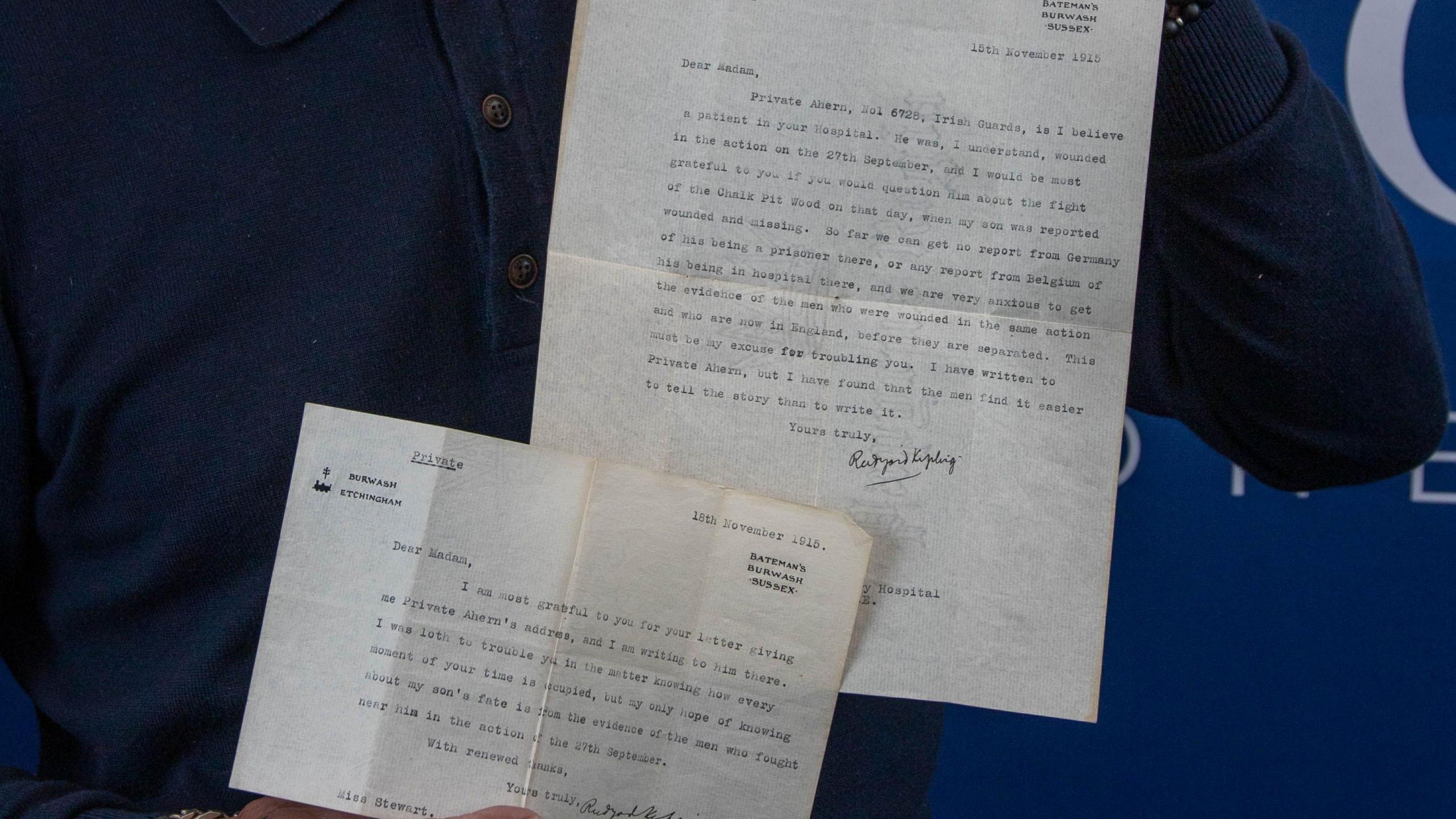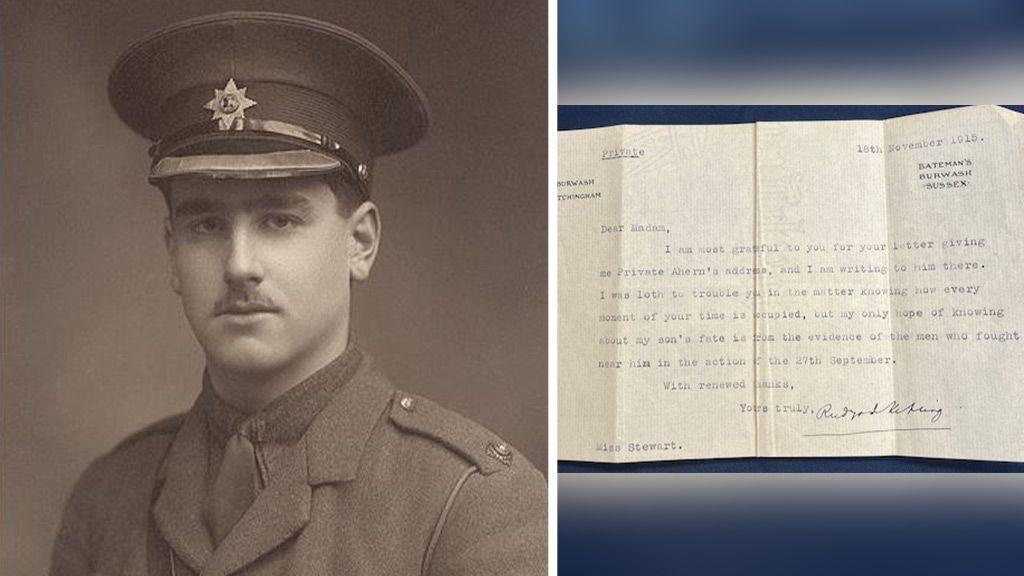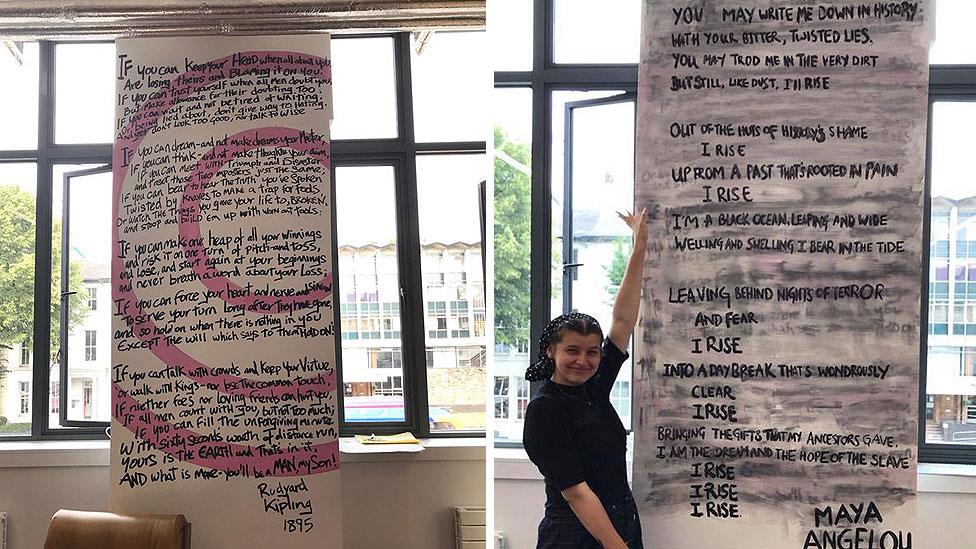Rudyard Kipling WW1 letters reveal search for son

Rudyard Kipling is perhaps best known for writing The Jungle Book, Kim and Just So Stories
- Published
Letters dating back to 1915 have been discovered that show author Rudyard Kipling appealing for information about his son, who went missing on the Western Front during World War One.
The writer and poet is best known for his poems and stories set in India during the period of British imperial rule.
A quote from one of the letters, which are due to be sold at an auction in Derbyshire on Thursday, reads: "My only hope about knowing about my son's fate is from the evidence of the men who fought near him on the action of the 27th September."
Kipling died in 1936 and it was not until 1992 that a body believed to be his son's was found in an unmarked grave near Loos, France.

Two of the letters are dated 15 and 18 November 1915
Kipling, born in Bombay, India in 1865, turned down many honours in his lifetime, including a knighthood and the poet laureateship, but in 1907 he accepted the Nobel Prize for Literature - the first English author to be so honoured.
On 27 September 1915, his son, Second Lieutenant Jack Kipling, went into battle on the third day of the Battle of Loos.
As his Irish Guard battalion advanced towards Chalk Pit Wood, he was wounded and subsequently declared missing.
This prompted his father, who was living at Bateman's in Burwash, East Sussex, to begin writing letters to the City of London Military Hospital.

Second Lieutenant John Kipling in 1915 and one of the letters, signed by Kipling
In one of two letters discovered, this time to the matron, Kipling said: "So far we can get no report from Germany of his being a prisoner there, or any report from Belgium of his being in hospital there, and we are anxious to get the evidence of the men who were wounded in the same action and who are now in England, before they are separated. This must be my excuse of troubling you."
Kipling died in 1936 without finding out what had happened to his son.
The body of his son was eventually found in 1992 and is believed to be in plot seven in St Mary's Advanced Dressing Station Cemetery, Haisnes, near Loos.
The letters were acquired in the 1950s by a London collector whose grandson - who lives in Derbyshire and does not wish to be named - inherited them from his mother.
Karl Martin, from Hansons Auctioneers, called the letters "a deeply personal and great insight into the torment of a father".
"Kipling, who was in favour of the war, helped facilitate his son's commission with the Irish Guards after his poor eyesight made him ineligible for military service," said Mr Martin.
"Knowing the casualty rate, Kipling might have known he was signing his son's own death warrant. But he and wife, Carrie, thought it essential to prevent a German victory."
Kipling never wrote directly about the loss of his son, but it is thought to have inspired the poem My Boy Jack, in which a sailor asks for news of his son.
The poem includes the line: "Have you news of my boy Jack... has anyone else had word of him?"
Get in touch
Tell us which stories we should cover in Derby
Follow BBC Derby on Facebook, external, on X, external, or on Instagram, external. Send your story ideas to eastmidsnews@bbc.co.uk, external or via WhatsApp, external on 0808 100 2210.
Related topics
- Published19 July 2018
